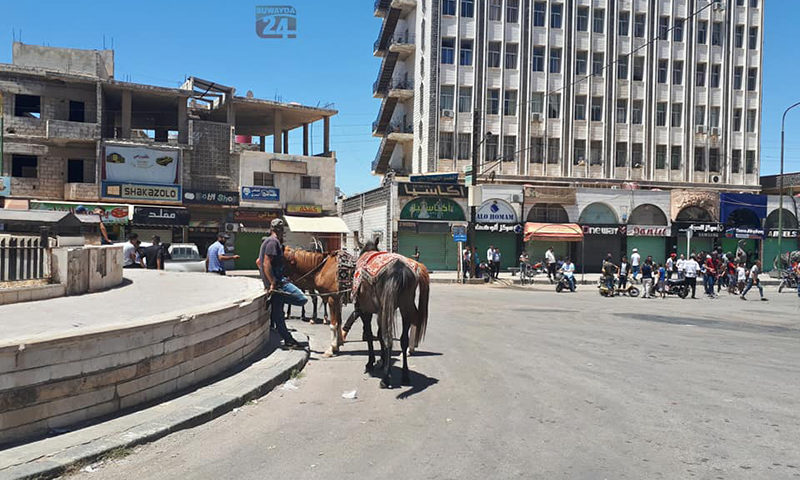On May 29, 2020, Suweida recorded the first case of COVID-19, as reported by the Health Directorate in the governorate. Since that date, the number of coronavirus cases has been growing; 47 new cases of COVID-19 and three related deaths were recorded in various parts of the governorate at the time of writing, according to the statistics of the Syrian regime’s Ministry of Health.
In an interview with Enab Baladi, a doctor from the emergency unit in the National Hospital in Suweida, who spoke on condition of anonymity for security reasons, said that the numbers announced by the Health Directorate in the governorate are “not accurate,” and that the confirmed coronavirus cases are “more than the declared.”
Assistant Director of Health, Dr. Ahmed Habas, confirmed in a post on his personal Facebook page that, “The number of COVID-19 cases reported in Syria is much less than the real number.”
The high number of people infected with the coronavirus in different parts of Syria coincided with an increase in the prices of the materials needed to prevent the virus.
An estimated 83 percent of Syrians live below the poverty line, according to the United Nations statistics.
Several pharmacists in Suweida, with whom Enab Baladi met, confirmed that the pricing of protective products, such as masks, is set by the Syrian regime’s Ministry of Health.
Assem Tayfour, an industrialist who owns several companies in the industry and trade sectors, linked the high prices of masks to the decision to open the door for opportunities to export them.
He explained that the decision was taken at the request of the Chamber of Industry and Commerce, which contributed to the increase in their prices.
Tayfour said, “What’s worse, an industrialist introduced an electronic machine to produce masks, placed in al-Debs Company, which produces about 300 masks per minute, but the decision to stop production was made and the machines were removed from the factory.”
Tayfour asked why it was stopped, noting that it does not cost the government a single Syrian pound.
Additional burdens
The people of Suweida are struggling to cover their basic daily requirements, in light of the unprecedented rise in prices. Therefore, the purchase of prevention equipment against the coronavirus constitutes an additional burden that exacerbates their suffering. Not to mention that they have to stand in crowded queues for long periods to buy essential commodities.
Abu Basil (a pseudonym) told Enab Baladi about his suffering in order to obtain one bundle of bread, saying, “I go out every day early in the morning to buy a bundle of bread, and I wait for more than an hour with dozens of people until my turn comes in front of the automated bakery in the city.”
Abu Basil added, “I wear a face mask without gloves due to their high prices, and I use my masks multiple times over the week.”
He pointed out that most of those who stand daily in front of the bakery do not wear masks, not even gloves. They do not observe social distancing seriously because, as they put it, ‘The Syrian people can only rely upon God and pray for the coronavirus to vanish.’”
This article was edited by The Syrian Observer. The Syrian Observer has not verified the content of this story. Responsibility for the information and views set out in this article lies entirely with the author.


